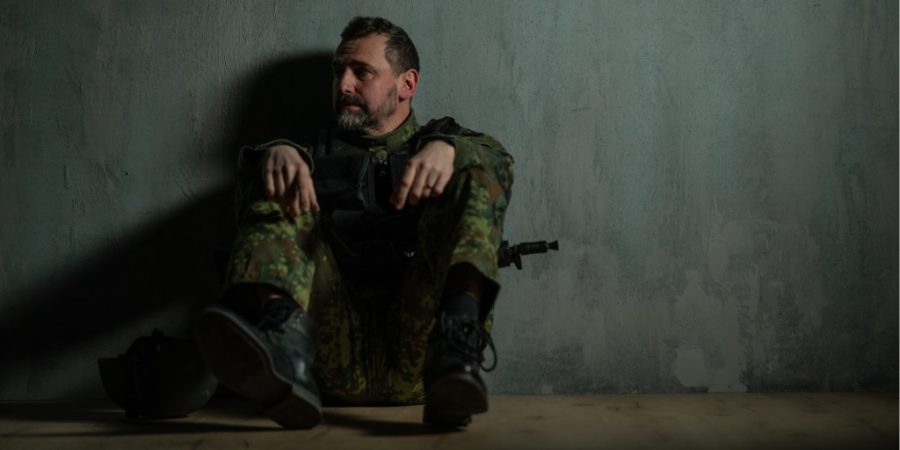
Suicide is the act of intentionally ending one’s own life. However, not everyone who thinks about suicide acts upon it. Below, we’ll delve deeper into the question, “What are suicidal ideations?” as well as what to do if you or a loved one experience them.
In the United States, suicide is a leading cause of death for numerous population groups, including adolescents and veterans. For this reason, it is vital to learn about suicide and its warning signs. Always check in with your loved ones and reach out for help when you need it.
Please note that suicide ideation should not be taken lightly. If you or a loved one are considering suicide, call the National Suicide Prevention Lifeline at 1-800-273-8255 for immediate support.
Table of Contents
What Are Suicidal Ideations?

We’ve covered what suicide is, but what are suicidal ideations? Otherwise known as suicidal thoughts, suicidal ideations are thoughts, urges, or wishes to die or kill oneself.
Two main types of suicidal ideations exist: passive and active. Passive suicidal ideation refers to thinking about suicide without making a plan to see it through. People who are passively suicidal may engage in riskier behaviors out of apathy, like crossing the street without checking for oncoming traffic.
On the other hand, those with active suicidal thoughts have developed a tangible plan to commit suicide. For example, they may have decided on a method or time, written farewell notes for their loved ones, and given away some of their possessions.
Warning Signs of Suicidal Ideations
Knowing the answer to, “What are suicidal ideations?” is the first step to identify and reduce the risk of suicide. The next step involves learning specific red flags to recognize in the people around you.
In most cases, when someone experiences suicidal thoughts, they can showcase a variety of symptoms. Some signs are subtle, making it crucial to stay informed about what to look for in yourself and others.
Warning signs of suicidal ideation include:
- Feelings of hopelessness or depression
- Lack of motivation or enjoyment for hobbies and activities
- Poor hygiene or appetite
- Increased substance use
- Anxiety or aggression
- Extreme mood swings
- Isolating from loved ones
- Giving away possessions
- Quitting jobs, ending relationships; “tying up loose ends”
If someone you know demonstrates the above symptoms or talks about subjects like death, pain, or feeling trapped, they may be thinking about or planning a suicide attempt. Learn more about how to help someone you suspect is suicidal, and don’t hesitate to reach out to them.
Who Experiences Suicidal Ideations?
What are suicidal ideations indicative of? Individuals who experience suicidal thoughts are typically spurred on by other problems in their lives. Among the most prominent issues associated with suicidal ideation are mental health disorders.
Almost any mental health condition can lead to suicidal thoughts if it is severe enough or left untreated. This includes:
- Depression
- Anxiety
- Post-traumatic stress disorder
- Bipolar disorder
- Substance use disorder
- Schizophrenia
- Eating disorders
In addition to mental illness, there are external risk factors for suicidal ideation, such as:
- Family history of depression or suicide
- Social isolation
- Loss of job or stress at work
- Relationship troubles
- Access to potential means of suicide (medications, firearms, etc.)
- Financial, legal, or criminal problems
- Sexual assault
- Bullying
When people face any of the above challenges, they may feel as though death is the only way to escape the pain. However, that is never the case. Individuals with mental health disorders can learn to manage their symptoms. Similarly, those who experience stressful life experiences can process their negative emotions and move past those events in time.
Risk of Suicide in Veterans

Suicide affects different population groups in different ways. Some people are at a much higher risk of suicide, while it affects others less frequently.
One group at a particularly high risk of suicide is the veteran population. In fact, veterans are twice as likely as civilians to commit suicide. Put another way, over 6,000 veterans in the United States die by suicide every year. And on average, that means 17 veterans commit suicide every single day.
Several potential reasons for this stand out. Veterans tend to experience deeper wounds and trauma than civilians. For instance, combat exposure, military sexual trauma, training accidents, and more all leave lasting impacts on the mental health of veterans.
As a result, veterans receive more diagnoses for post-traumatic stress disorder, live with more chronic pain, and are more susceptible to substance use disorders. All of these are factors that often contribute to suicidal ideations.
How Are Suicidal Ideations Treated?
Now that we have discussed the question, “What are suicidal ideations?” you may be wondering how they are treated. The specifics depend largely on the root problem causing someone’s suicidal thoughts, but typical treatment options include various therapies.
These therapeutic activities are designed to identify negative thought patterns, improve internal dialogue, and build self-confidence. For those living with a mental illness like depression or working to overcome a certain traumatic experience, this approach provides them with the tools they need to better process their emotions.
Some of the therapeutic options available to those experiencing suicidal ideations include:
- Cognitive behavioral therapy
- Eye movement desensitization and reprocessing (EMDR) therapy
- Art therapy
However, if someone is having suicidal thoughts as a result of substance abuse, they may need additional help in the form of inpatient addiction treatment. Otherwise, as they continue to drink alcohol or use drugs, they will keep feeding into the same negative feedback loops. This can worsen both conditions in a downward spiral.
Rest assured, though, that help is out there. Heroes’ Mile provides substance abuse and mental health services for veterans in need.
Get Help for Depression and Addiction
Heroes’ Mile is an alcohol and drug rehab made for veterans by veterans. The invisible wounds of war don’t have to go untreated. Our licensed physicians and mental health professionals work with you to create a full continuum of individualized care. Whether your substance use goes hand-in-hand with PTSD or suicidal thoughts, we can guide you on the path to recovery.
If you have additional questions like, “What are suicidal ideations?” or if you’re a veteran looking for effective addiction treatment, Heroes’ Mile can help. Contact us by calling 888-838-6692 or filling out a confidential contact form online. Our admissions experts are happy to answer any questions and provide any information you want to know.
The post What Are Suicidal Ideations? Definition and Symptoms appeared first on Heroes’ Mile Veterans Recovery Center.
Source
Original Author: Heroes’ Mile

